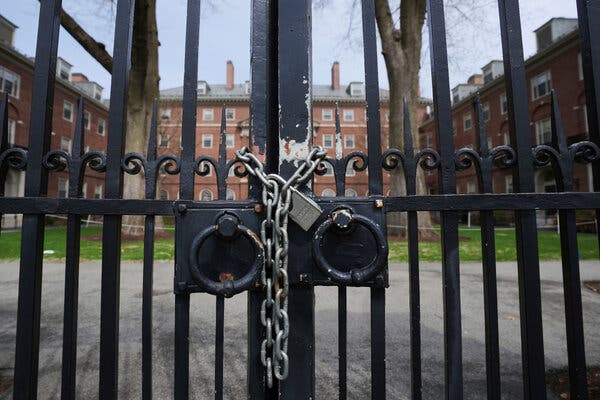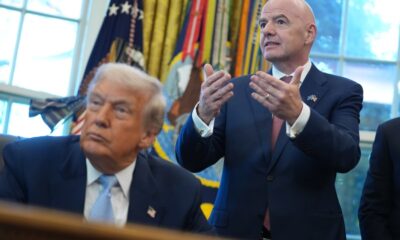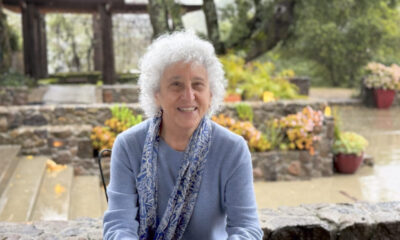Education
Addressing America’s Social Divide: The Call for Reform

America faces a significant challenge as social divisions deepen, driven by issues of segregation that extend beyond race to encompass class. The current political landscape, marked by actions from President Donald Trump, prompts citizens to consider their roles in fostering a healthier society. One individual who confronted this question is a former journalist with The New York Times, who decided to take a proactive approach by accepting a substantial pay cut and co-founding a nonprofit organization called Weave.
The mission of Weave is to address social distrust, which the founders perceive as a fundamental issue tearing at the fabric of American society. They advocate for local engagement, emphasizing the importance of community members—referred to as “Weavers”—who work to rebuild trust through service. Despite facing challenges in management and direction during his tenure, the organization has flourished under the leadership of Fred Riley and aims to expand to 75 communities within three years.
This experience has reinforced the journalist’s long-held belief that segregation, particularly along class lines, is a critical issue affecting the nation. Travel across diverse regions reveals stark contrasts between communities, highlighting a divide that mirrors a growing cultural and economic chasm. The work of political scientist Theda Skocpol from Harvard University elucidates this phenomenon. In her 2003 book, “Diminished Democracy,” she argues that traditional cross-class organizations, such as the Elks or Rotary clubs, have seen a decline in participation from highly educated individuals, who increasingly gravitate towards professional networks that resemble their own backgrounds.
Recent research published in the journal Nature underscores this trend, revealing that a disproportionate number of influential leaders in various fields, including media and politics, hail from just 34 elite institutions. This concentration of educational pedigree contributes to a societal divide where opportunities for social mobility are severely restricted.
The impact of this segregation extends to education, where children from affluent families have access to superior preschool options and resources, resulting in significant disparities by the time they reach high school. A 2017 study led by economist Raj Chetty found that individuals from the wealthiest 1% are 77 times more likely to attend elite universities than their counterparts from families earning $30,000 or less annually.
As the nation reflects on its past, it is essential to recognize that the modern class divide bears striking similarities to the systemic racism of the Jim Crow era. The journalist argues that resistance to Trump’s policies addresses symptoms rather than the root causes of growing populism, which has been fueled by pervasive social inequalities.
In recent years, attempts at education reform by Presidents Bill Clinton and Barack Obama aimed to disrupt the entrenched caste system and provide opportunities for the less privileged. However, the current political environment shows a retreat from these initiatives. President Joe Biden has not prioritized education reform, and candidates like Kamala Harris have not put forth robust agendas to address these issues.
The shift in focus towards education reform in red states has gained traction, with states like Mississippi and Louisiana showing remarkable improvements in student performance. This trend highlights a growing gap between the parties, as Democrats risk becoming the party of the status quo while Republicans embrace innovation in education.
As the political landscape evolves, it is crucial for those opposing Trump to embrace a dual mission: to resist his policies while simultaneously pursuing meaningful reforms that address the root causes of societal division. This approach must prioritize dismantling the existing caste system, which necessitates policy reforms that direct investments toward job sectors that do not require a college degree.
In addition to policy changes, social reform at the grassroots level is vital. Individuals are encouraged to engage in cross-class organizations and activities, fostering connections across socioeconomic divides. Even small gestures can contribute to bridging the gaps that have formed within society.
Reflecting on personal experiences, the journalist notes that wearing a New York Mets hat this summer has facilitated conversations with individuals from various backgrounds, reinforcing the idea that shared interests can unite disparate communities. This realization underscores the potential for collective action to reshape the narrative of American society into one of inclusivity rather than division.
In conclusion, addressing America’s challenges requires a concerted effort to confront segregation—both racial and class-based. By fostering connections and advocating for systemic reforms, citizens can work towards a more equitable society where opportunity is accessible to all.
-

 Technology5 months ago
Technology5 months agoDiscover the Top 10 Calorie Counting Apps of 2025
-

 Health3 months ago
Health3 months agoBella Hadid Shares Health Update After Treatment for Lyme Disease
-

 Health3 months ago
Health3 months agoErin Bates Shares Recovery Update Following Sepsis Complications
-

 Technology4 months ago
Technology4 months agoDiscover How to Reverse Image Search Using ChatGPT Effortlessly
-

 Technology1 month ago
Technology1 month agoDiscover 2025’s Top GPUs for Exceptional 4K Gaming Performance
-

 Technology3 months ago
Technology3 months agoElectric Moto Influencer Surronster Arrested in Tijuana
-

 Technology5 months ago
Technology5 months agoMeta Initiates $60B AI Data Center Expansion, Starting in Ohio
-

 Technology5 months ago
Technology5 months agoRecovering a Suspended TikTok Account: A Step-by-Step Guide
-

 Health4 months ago
Health4 months agoTested: Rab Firewall Mountain Jacket Survives Harsh Conditions
-

 Lifestyle5 months ago
Lifestyle5 months agoBelton Family Reunites After Daughter Survives Hill Country Floods
-

 Health3 months ago
Health3 months agoAnalysts Project Stronger Growth for Apple’s iPhone 17 Lineup
-

 Technology4 months ago
Technology4 months agoHarmonic Launches AI Chatbot App to Transform Mathematical Reasoning





















